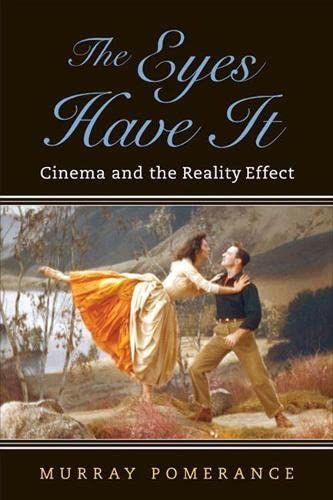
The Eyes Have It Cinema and the Reality Effect
The Eyes Have It explores those rarified screen moments when viewers are confronted by sights that seem at once impossible and present, artificial and stimulating, illusory and definitive. Beginning with a penetrating study of five cornfield sequences—including The Wizard of Oz, Arizona Dream, and Signs—Murray Pomerance journeys through a vast array of cinematic moments, technical methods, and laborious collaborations from the 1930s to the 2000s to show how the viewer's experience of "reality" is put in context, challenged, and willfully engaged. Four meditations deal with “reality effects” from different philosophical and technical angles. “Vivid Rivals” assesses active participation and critical judgment in seeing effects with such works as Defiance, Cloverfield, Knowing, Thelma & Louise, and more. “The Two of Us” considers double placement and doubled experience with such films as The Prestige, Niagara, and A Stolen Life. “Being There” discusses cinematic performance and the problems of believability, highlighting such films as Gran Torino, The Manchurian Candidate, In Harm’s Way, and other films. “Fairy Land” explores the art of scenic backing, focusing on the fictional world of Brigadoon, which borrows from both hard-edged realism and evocative landscape painting.